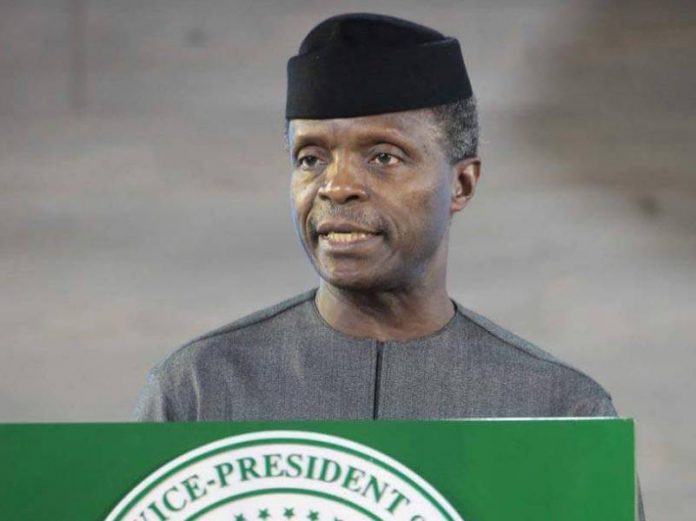Vice President Yemi Osinbajo on Thursday said Nigeria must use its oil wealth to prepare for a future when the world no longer runs on fossil fuels.
The Vice-President stated this at the 55th anniversary of the Oil Producers Trade Section of the Lagos Chamber of Commerce and Industry (LCCI) in Lagos.
He said Nigeria, as a member of the Organisation of the Petroleum Exporting Countries (OPEC) , needed to develop renewable energy and help other businesses flourish to adjust to the reality of the dwindling significance of fossil fuels.
“It is no longer a question of if but when,” Osinbajo said, referring to global efforts to shift away from oil as a fuel.
“Oil-rich countries, such as ourselves, have an obligation to prepare for a destiny that may well be beyond oil,” he said.
He said the government had long talked of diversifying Africa’s largest economy away from reliance on oil, but earnings from output of crude still provide two-thirds of state revenue.
The vice president called on oil and gas majors in Nigeria, many of them represented in the audience, to invest in renewable energy research and development to help Nigeria prepare for a “clean energy economy and the post-oil world”.
Osinbajo said that the ailing power infrastructure meant that, despite its oil wealth, blackouts are common in the nation of 180 million people in which many businesses rely on costly generators to operate.
The Vice-President said the government had previously said it wanted to diversify the power supply.
“In the past few months, it has announced a 5.8 billion dollar deal to build the 3,050 megawatt (MW) Mambilla hydroelectric plant and purchase agreements with 14 solar companies for 1,300 MW of power as part this drive,” he said.
Osinbajo said the country needed to reduce “bureaucratic bottlenecks” in contract awards and approvals.
“This week, the World Bank said Nigeria was among the 10 economies showing the most notable improvement in its Ease of Doing Business list,” he said.
Mrs Nike Akande, the President, Lagos Chamber of Commerce and Industry (LCCI) said oil and gas sectors remained very critical to the economy of the country.
According to Akande, Nigeria needs the resources from the sector to power its economic diversification drive as contained in the Economic Recovery and Growth Plan (ERGP).
She commended OPTS for the choice of theme of the event, adding that it would address one of the most important priorities for the country.
The President said since its inception in 1962, the section had been among the foremost and most supportive groups in the chamber.
Akande congratulated OPTS for their sustained commitment to the advancement of Nigerian economy.
In his remarks, Mr Osagie Okunbor, the Chairman, OPTS, said the group had a humble beginning in 1962 with just three founding member companies.
According to Okunbor, the OPTS was created in response to the budding oil and gas sector which offered huge prospects for the emerging Nigerian Nation.
He said the history of OPTS then was the story of oil and gas exploration and production in Nigeria because the country just discovered oil six years earlier.
The Chairman said that despite the challenging fiscal regime,security and environmental circumstances, the group had contributed significantly to the development of Nigeria.
“Oil and gas revenue accounts for over 90 per cent of export earnings, 83 per cent of the federal revenue and about 35 per cent of the nation Gross Domestic Product (GDP).
“As complex and difficult as the Nigerian business environment may be described, there are opportunities for improvement and opportunities for growth,” he said.

